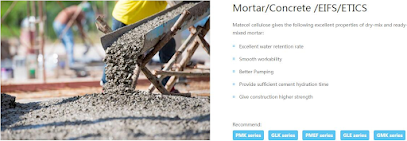Steps to Install Glass Mosaic Tiles in Swimming Pools
There is no better way to make your pool stand out in the water than with decorative tiles. Whether it's residential or commercial waters, a glass mosaic tile installation can take your pool to a new level of luxury.
But how do you choose which tiles will stand the test of time, and how do you care for them? How do you install them and what are the best applications? Don't worry, the guide to installing mosaic pool tiles is here.
Your top choice
Now you can buy glass mosaic tiles that are glued to individual tiles with a paper surface.
If you want to cover a very large area with tiles, then you should definitely consider the sheeting option.
If you are traveling abroad and find small, unique tiles that you want to incorporate, then choose a pattern that is loose and spread out.

How to cut
If you choose a tile pattern that requires sections of different sheets, then simply cut the paper, mesh support or plastic sheeting that holds the tiles together. You should use a new sharp hobby knife to make precise cuts.
If you need to be really specific and detailed about your design and cut out certain tiles, then consider purchasing a specialized glass mosaic tile cutter.
How to set it up
First, you will definitely need a polymer-modified mortar. Some specific mortars are very compatible with glass mosaic tiles. This will ensure that you get a very strong bond when placing the tiles.
However, it is important to remember that the mortar you choose may affect the appearance of the glass mosaic tiles. If you choose a clear or translucent option, the mortar may end up having an impact on the overall appearance or color of the tiles.

Cover it
After placing the beautiful mosaic tiles in place, you will need to cover them. You do not need to cover the flat areas individually. Simply cover the entire pool and you'll be fine.
By covering the pool, you will give the tiles and adhesive time to fully cure. The reason for covering the pool is to eliminate the effects of temperature and humidity on the tiles while they are curing. Then, it's time to prepare the grout.
Grouting
Yes, the most difficult and time-consuming part of the entire process of installing glass mosaic tiles is right here. Grouting. First, remove the glass mosaic tiles from the paper or tile tape before you start grouting.
Next, make sure all tile surfaces are free of any residue from the adhesive backing. Some glass mosaic tile options are more prone to scratching if you use a rough or sanded grout, so be sure to follow the manufacturer's specifications when using tile grout.

Caulking Talk
You can now inject caulk into all expansion joints in your tile work. Simply use a caulking gun and make sure to fill each joint evenly. Then, just as you did during the grouting process, use a damp rag to wipe away the excess caulk. Excess caulk does need to be removed immediately to avoid drying out on the tile.
Wait it out
Waiting 20 days will allow your pool tiles to fully cure. This will ensure that they stay in place through many years of sunny pool parties. You should fill your pool at a rate of 1 inch per hour. While this may seem like a slow process, it is the best option for conserving water and pool pressure. Once your pool is full, jump in and enjoy.

Beware
Fortunately, mosaic tiles are low-maintenance once they're in place. They are naturally stain resistant, and quality grout will hold them in place. Monitor your tiles and make sure you clean them semi-regularly to ensure calcium deposits aren't building up. There are many great options for pool cleaning that won't damage your beautiful tiles.
Tiles are a great way to customize your home. They can be used in a variety of ways to add design and color. For the best tiles for your pool, bathroom or kitchen, contact us today!

评论
发表评论